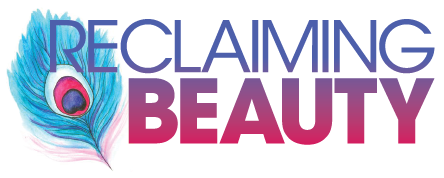Your Relationship with Food and the Relational Cycle
What Truth Is Your Relationship with Food Telling You Today?
Our relationship with food contains patterns for how we engage with what we want and need in life. These patterns hold clues for what is needed for our healing process.
In the Embodied Recovery for Eating Disorders approach, we use the relational cycle as a map to explore the patterns of behavior that comprise our relationship with food. The Relational Cycle, proposed by Bonnie Bainbridge Cohen, suggests that the instinctual movements we learn in the first two years of life influence our lifelong sense of safety, belonging and autonomy.
As described by Licensed Clinical Psychologist Dr. Arielle Schwartz:
““Knowing that you are safe to explore your environment, that you can reach for what you want, and that that you can receive it once you get it provides a deep sense of accomplishment and gratification. Most importantly, movement patterns that are not sufficiently embodied can create disruptions not only in your physical development but in other areas of your life, such as the ability to relax, learn, process your emotions, communicate your needs, or have meaningful relationships.””
What is the Relational Cycle?
There are five fundamental actions of the relational cycle. These include push, reach, grasp, pull, and yield. These developmental movement patterns are naturally in us when we are young. As babies, we use these patterns to explore the world around us. As adults, these patterns can show us how we surrender, approach, go for, and digest all that we want and desire from life. This concept applies to food, exercise, relationships, sex, money, and everything else that matters to you.
The Relational Cycle and Your Relationship with Food.
● When Push is interrupted, we have an Insight Barrier - it is difficult to embody oneself and therefore we can struggle with clarity
● When Reach is interrupted, we have a Response Barrier – it is difficult to mobilize a reach or reach for what we really want and need
● When Grasp/Pull is interrupted, we have a Nourishment Barrier – it is difficult to take in and digest that which we really want and need
● When Yield is interrupted, we have a Completion Barrier. It’s difficult to rest and allow ourselves to fully digest what we really want and need
Push relates to Clarity and allows us to identify hunger and fullness cues and recognize preferences. When push is interrupted, we may restrict and/or binge due to inability to identify hunger or fullness, or have difficulty identifying food preferences.
Reach relates to Effectiveness and allows us to select and prepare foods. When reach is interrupted we may have difficulty with food selection or preferences and then may struggle with binging or restriction.
Grasp/Pull relates to Satisfaction and allows us to find pleasure in eating and experience the ease of hunger. When grasp/pull is interrupted, we may struggle with restriction or binging/purging. This is due to inability to take in the nourishment available to us.
Yield relates to Relaxation and allows us to stop and digest, and experience “enough”. When yield is interrupted, we may binge, restrict, or excessively exercise due to the inability to experience “enough.”
Reflect
In these descriptions, notice where you have blocks. These barriers are keys to what is missing developmentally that may interfere with your ability to identify, go for, receive, and integrate what you want and need in your life. Exploring our relationship with food through the relational cycle provides opportunities to install missing developmental movement patterns into our embodied experience. This process contributes to a deeper sense of embodiment, effectiveness, and satisfaction from life.
Want to Explore More?
If you’re interested in learning more about Reclaiming Beauty’s approach or our disordered eating therapists, schedule a consultation! You can also sign up for our newsletter, or follow us on Instagram @reclaimingbeauty to be the first to know EXCITING upcoming collaborations with the Embodied Recovery Institute exploring these themes.
Getting Started with Disordered Eating Therapy in Asheville, NC Today
Join us at Reclaiming Beauty as we start a journey toward embracing a more wild and free relationship with food. Our disordered eating therapists stand ready to support you in reclaiming your innate beauty, authenticity, and vitality at every stage of life. Follow these few steps to get started:
Contact us so we can get to know you better.
Learn more about our approach.
Explore more about the relational cycle!
Other Services We Offer in Asheville, NC
Discover a holistic approach to well-being at Reclaiming Beauty. Our personalized embodiment coaching unlocks the wisdom within, fostering self-compassion and resilience. Or, explore the transformative benefits of the Safe and Sound Protocol (SSP). This is a non-invasive auditory intervention that enhances social engagement and reduces stress.
FOR POTENTIAL CLIENTS
FOR PROFESSIONALS
References:
Sensorimotor Psychotherapy Institute
Lewis-Marlow, Rachel. (2019). Boats and sharks: A sensorimotor psychotherapy approach to the treatment of eating disorders and trauma. In A. Seubert & P. Virdi, Trauma-Informed Approaches to Eating Disorders. (1st ed., pp 287-298). Springer Publishing Company.
Sensitivity Cycle - Ron Kurz (Insight ==. Action ==> Nourishment ==> Rest)
Action Cycle - Ron Kurz and Pat Ogden (Clarity ==> Effectiveness ==> Satisfaction ==> Relaxation)



